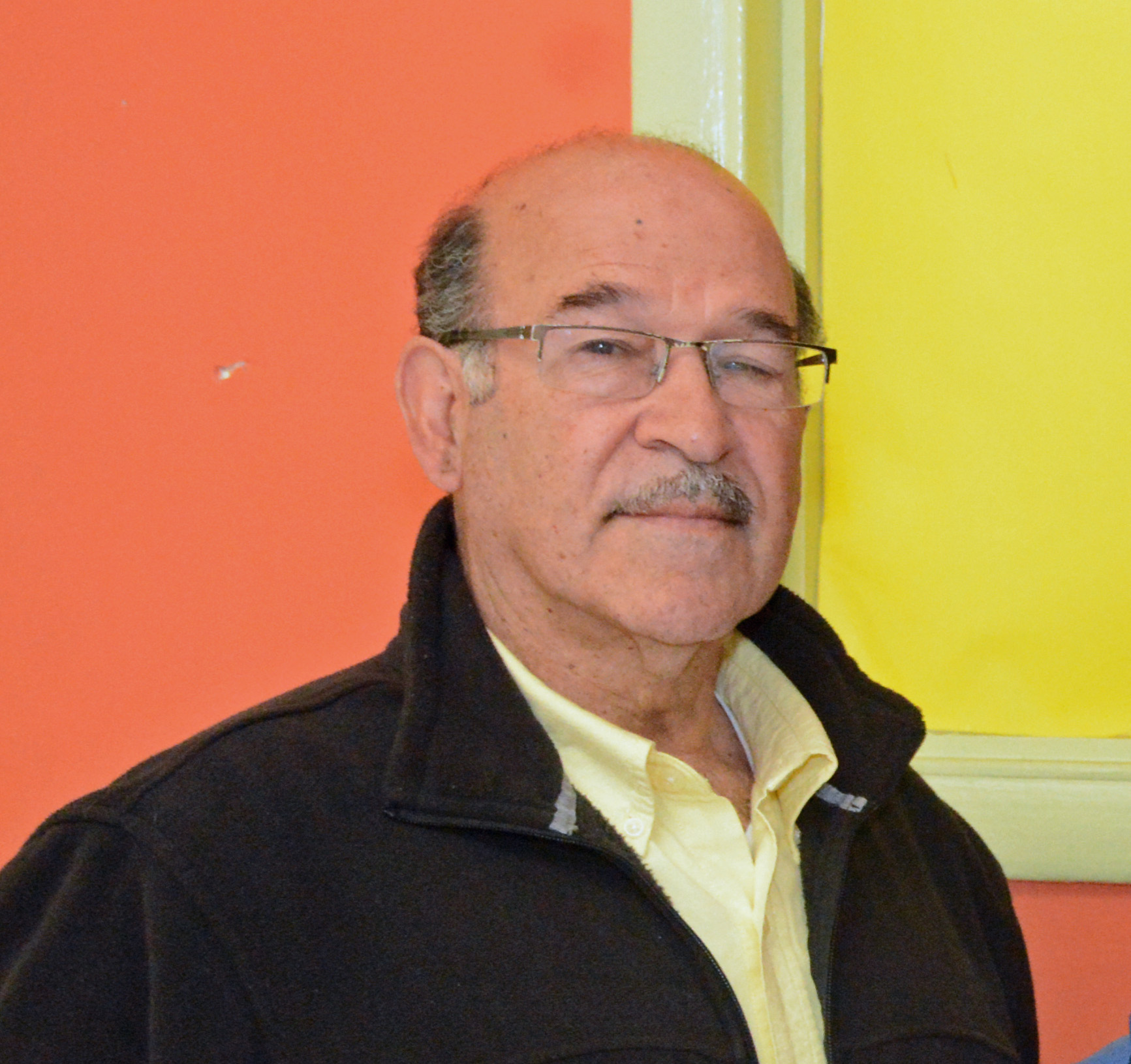Community
Continuing Pressure for Community Involvement in Hiring of Oakland Schools’ Chief

As the Oakland Board of Education moves ahead with its search for a new superintendent of schools, members of the community are continuing to push for a more transparent hiring process.
Local groups are calling on the school board to open up the historically secretive selection of a new superintendent and to pick a new school leader who is from Oakland and committed to staying in the position for five or more years.
Recent Oakland Unified School District (OUSD) superintendents have stayed on the job for less than three years.
There has also been widespread agreement among speakers who have attended public engagement meetings that they want a superintendent who is not connected to a “corporate” school privatizing organization, such as the Broad Foundation, but who has a track record of listening to the community and prioritizes serving the majority of Oakland students, who are Black, Latino and often have special needs.
As of a few days ago, about 35 potential candidates had taken out applications papers, according to district officials. Applications had to be submitted by Wednesday of this week.
“We’re expecting to get a good group of candidates,” said School Board President James Harris in an interview with the Post last week. “We are aggressively seeking Latino candidates, who might otherwise not hear about the job. We’re getting a good influx of African American candidates. We’re look for some rock stars out there.”
He said the potential applicants include experienced superintendents from around the Bay Area and California.
According to Harris, over 1,000 people had completed an online survey on what qualities they want to see in a superintendent.
“It shows the level of interest that people have,” he said. “It’s more than ever before.”
One of the organizations that has been taking an active role in the superintendent selection process is State of Black Oakland (SOBO), whose education workgroup recently held community-based interviews with three superintendent candidates, attended by 70 people.

Noni Sessions
“We’re trying to short circuit the usual corporate selection process,” said Noni Session of SOBO. “They hire someone without knowledge of the community, and the person leaves in less than three years. This is a national problem.”
She also added, “this is not the way to get stable schools and a stable district.”
Sessions said SOBO is working “to get a local Black or Latino superintendent.”
Victor Martinez of the Latino Education Network (LEN) said his organization wants the search for a new superintendent to include qualified school administrators from throughout the Southwest.
“We don’t want that to be an artificial barrier to others who are qualified to apply and should not be discouraged,” he said. “We’re more likely to find a Latino if we look more broadly.”
“(Whether Latino or not), we need someone who has worked with the large Latino populations, like in Oakland, and has demonstrated success.”
According to a statement issued by LEN, Latinos make up the largest group of students in OUSD, but the school district has historically not met the needs the needs of Latino and English Learner Students, most of whom come from low-income families. Nor has the district hired a fair representation of Latino educators or other employees.

Victor Martinez
“The failure to hire Latinos and include Latinos in decisions and policy leaves Latinos disenfranchised and out of crucial educational benefits,” the statement said.
Pecolia Manigo, executive director of Parent Leadership Action Network, has been working hard to bring together organizations in Justice for Oakland Students Coalition.
The coalition has been circulating a petition to seek a district leader who “will bring a vision and system-wide plan for real results for African-American, Latino, and all high-need students, based on the priorities set by students and families; (and) will ensure budget equity by prioritizing direct funding to schools, not in high salaries in central office.”
The petition, which already has 3,200 signatures, is available here.

Pecolia Manigo
Participants in the coalition include Oakland Kids First, Black Organizing Project (BOP) and Parents United for Public Education.
“We are actively organizing to have a different type of OUSD superintendent search because we believe that OUSD needs a leader who will feel and take action to be accountable to students of color—the majority of OUSD students,” said Manigo.
Activism
Oakland Post: Week of December 31, 2025 – January 6, 2026
The printed Weekly Edition of the Oakland Post: Week of – December 31, 2025 – January 6, 2026

To enlarge your view of this issue, use the slider, magnifying glass icon or full page icon in the lower right corner of the browser window.
Activism
Big God Ministry Gives Away Toys in Marin City
Pastor Hall also gave a message of encouragement to the crowd, thanking Jesus for the “best year of their lives.” He asked each of the children what they wanted to be when they grow up.

By Godfrey Lee
Big God Ministries, pastored by David Hall, gave toys to the children in Marin City on Monday, Dec. 15, on the lawn near the corner of Drake Avenue and Donahue Street.
Pastor Hall also gave a message of encouragement to the crowd, thanking Jesus for the “best year of their lives.” He asked each of the children what they wanted to be when they grew up.
Around 75 parents and children were there to receive the presents, which consisted mainly of Gideon Bibles, Cat in the Hat pillows, Barbie dolls, Tonka trucks, and Lego building sets.
A half dozen volunteers from the Big God Ministry, including Donnie Roary, helped to set up the tables for the toy giveaway. The worship music was sung by Ruby Friedman, Keri Carpenter, and Jake Monaghan, who also played the accordion.
Big God Ministries meets on Sundays at 10 a.m. at the Mill Valley Community Center, 180 Camino Alto, Mill Valley, CA Their phone number is (415) 797-2567.
Activism
First 5 Alameda County Distributes Over $8 Million in First Wave of Critical Relief Funds for Historically Underpaid Caregivers
“Family, Friend, and Neighbor caregivers are lifelines for so many children and families in Alameda County,” said Kristin Spanos, CEO, First 5 Alameda County. “Yet, they often go unrecognized and undercompensated for their labor and ability to give individualized, culturally connected care. At First 5, we support the conditions that allow families to thrive, and getting this money into the hands of these caregivers and families at a time of heightened financial stress for parents is part of that commitment.”

Family, Friend, and Neighbor Caregivers Can Now Opt Into $4,000 Grants to Help Bolster Economic Stability and Strengthen Early Learning Experiences
By Post Staff
Today, First 5 Alameda County announced the distribution of $4,000 relief grants to more than 2,000 Family, Friend, and Neighbor (FFN) caregivers, totaling over $8 million in the first round of funding. Over the full course of the funding initiative, First 5 Alameda County anticipates supporting over 3,000 FFN caregivers, who collectively care for an estimated 5,200 children across Alameda County. These grants are only a portion of the estimated $190 million being invested into expanding our early childcare system through direct caregiver relief to upcoming facilities, shelter, and long-term sustainability investments for providers fromMeasure C in its first year. This investment builds on the early rollout of Measure C and reflects a comprehensive, system-wide strategy to strengthen Alameda County’s early childhood ecosystem so families can rely on sustainable, accessible care,
These important caregivers provide child care in Alameda County to their relatives, friends, and neighbors. While public benefits continue to decrease for families, and inflation and the cost of living continue to rise, these grants provide direct economic support for FFN caregivers, whose wages have historically been very low or nonexistent, and very few of whom receive benefits. As families continue to face growing financial pressures, especially during the winter and holiday season, these grants will help these caregivers with living expenses such as rent, utilities, supplies, and food.
“Family, Friend, and Neighbor caregivers are lifelines for so many children and families in Alameda County,” said Kristin Spanos, CEO, First 5 Alameda County. “Yet, they often go unrecognized and undercompensated for their labor and ability to give individualized, culturally connected care. At First 5, we support the conditions that allow families to thrive, and getting this money into the hands of these caregivers and families at a time of heightened financial stress for parents is part of that commitment.”
The funding for these relief grants comes from Measure C, a local voter-approved sales tax in Alameda County that invests in young children, their families, communities, providers, and caregivers. Within the first year of First 5’s 5-Year Plan for Measure C, in addition to the relief grants to informal FFN caregivers, other significant investments will benefit licensed child care providers. These investments include over $40 million in Early Care and Education (ECE) Emergency Grants, which have already flowed to nearly 800 center-based and family child care providers. As part of First 5’s 5-Year Plan, preparations are also underway to distribute facilities grants early next year for child care providers who need to make urgent repairs or improvements, and to launch the Emergency Revolving Fund in Spring 2026 to support licensed child care providers in Alameda County who are at risk of closure.
The FFN Relief Grants recognize and support the essential work that an estimated 3,000 FFN caregivers provide to 5,200 children in Alameda County. There is still an opportunity to receive funds for FFN caregivers who have not yet received them.
In partnership with First 5 Alameda County, Child Care Payment Agencies play a critical role in identifying eligible caregivers and leading coordinated outreach efforts to ensure FFN caregivers are informed of and able to access these relief funds.FFN caregivers are eligible for the grant if they receive a child care payment from an Alameda County Child Care Payment Agency, 4Cs of Alameda County, BANANAS, Hively, and Davis Street, and are currently caring for a child 12 years old or younger in Alameda County. Additionally, FFN caregivers who provided care for a child 12 years or younger at any time since April 1, 2025, but are no longer doing so, are also eligible for the funds. Eligible caregivers are being contacted by their Child Care Payment Agency on a rolling basis, beginning with those who provided care between April and July 2025.
“This money is coming to me at a critical time of heightened economic strain,” said Jill Morton, a caregiver in Oakland, California. “Since I am a non-licensed childcare provider, I didn’t think I was eligible for this financial support. I was relieved that this money can help pay my rent, purchase learning materials for the children as well as enhance childcare, buy groceries and take care of grandchildren.”
Eligible FFN caregivers who provided care at any time between April 1, 2025 and July 31, 2025, who haven’t yet opted into the process, are encouraged to check their mail and email for an eligibility letter. Those who have cared for a child after this period should expect to receive communications from their child care payment agency in the coming months. FFN caregivers with questions may also contact the agency they work with to receive child care payments, or the First 5 Alameda help desk, Monday through Friday, from 9 a.m. to 5:00 p.m. PST, at 510-227-6964. The help desk will be closed 12/25/25 – 1/1/26. Additional grant payments will be made on a rolling basis as opt-ins are received by the four child care payment agencies in Alameda County.
Beginning in the second year of Measure C implementation, FFN caregivers who care for a child from birth to age five and receive an Alameda County subsidized voucher will get an additional $500 per month. This amounts to an annual increase of about $6,000 per child receiving a subsidy. Together with more Measure C funding expected to flow back into the community as part of First 5’s 5-Year Plan, investments will continue to become available in the coming year for addressing the needs of childcare providers in Alameda County.
About First 5 Alameda County
First 5 Alameda County builds the local childhood systems and supports needed to ensure our county’s youngest children are safe, healthy, and ready to succeed in school and life.
Our Mission
In partnership with the community, we support a county-wide continuous prevention and early intervention system that promotes optimal health and development, narrows disparities, and improves the lives of children from birth to age five and their families.
Our Vision
Every child in Alameda County will have optimal health, development, and well-being to reach their greatest potential.
Learn more at www.first5alameda.org.
-

 Bay Area4 weeks ago
Bay Area4 weeks agoPost Salon to Discuss Proposal to Bring Costco to Oakland Community meeting to be held at City Hall, Thursday, Dec. 18
-

 Activism4 weeks ago
Activism4 weeks agoMayor Lee, City Leaders Announce $334 Million Bond Sale for Affordable Housing, Roads, Park Renovations, Libraries and Senior Centers
-

 Activism4 weeks ago
Activism4 weeks agoOakland School Board Grapples with Potential $100 Million Shortfall Next Year
-

 Activism4 weeks ago
Activism4 weeks ago2025 in Review: Seven Questions for Black Women’s Think Tank Founder Kellie Todd Griffin
-

 Arts and Culture4 weeks ago
Arts and Culture4 weeks agoFayeth Gardens Holds 3rd Annual Kwanzaa Celebration at Hayward City Hall on Dec. 28
-

 Advice4 weeks ago
Advice4 weeks agoCOMMENTARY: If You Don’t Want Your ‘Black Card’ Revoked, Watch What You Bring to Holiday Dinners
-

 Activism4 weeks ago
Activism4 weeks agoAnn Lowe: The Quiet Genius of American Couture
-

 Activism3 weeks ago
Activism3 weeks agoDesmond Gumbs — Visionary Founder, Mentor, and Builder of Opportunity



















































